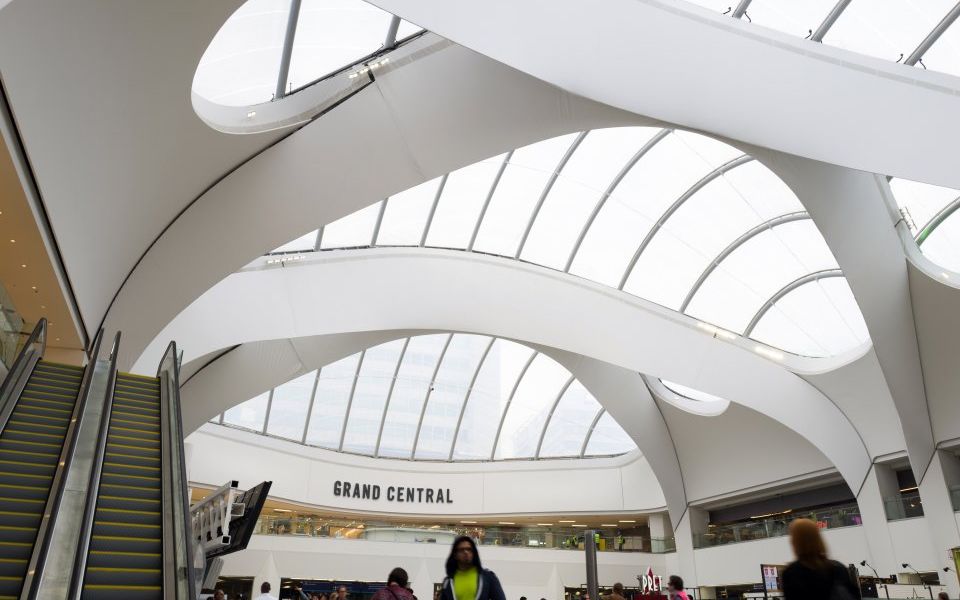London and the West Midlands can be an unstoppable force together

Over a year since taking on the role of West Midlands mayor, we have achieved a lot.
The wider region has experienced the largest increase in jobs in the UK, Coventry will be the country’s City of Culture in 2021, and Birmingham has secured the Commonwealth Games in 2022 – to name a few successes.
But naturally, as mayor I am constantly thinking about the region’s long-term future. Key to its growth and prosperity is forging stronger links with other big, dynamic cities like London.
Read more: HS2 hit by 12-month delay in further blow to controversial £56bn project
It was this aim, together with the rich entrepreneurial spirit and diverse talent in West Midlands, that inspired me to leave my role as managing director of John Lewis and run for mayor in the first place.
Many expect the role of a mayor to be inherently partisan. But I have been working with other metro mayors and council leaders across the political divide to ensure that we can learn from each other to create more jobs, boost skills, and improve public transport within and between our respective regions.
It’s a widely held view that our economy has become too dependent on London. But the way to rebalance it is not to try to undermine the capital. Through greater collaboration, we can be a more successful combined force.
Dialogue is crucial. In July, I joined the mayor of London on a visit to the capital’s traffic control centre. It kickstarted a knowledge-sharing relationship between London and the West Midlands.
The agreement is wide-ranging: from helping to build capacity within our respective regions to cutting congestion, it’s going to be an invaluable partnership.
In the next few years, the West Midlands will be hosting global events, and we need to be at the top of our game when it comes to offering first-class public transport. Transport for London has a wealth of experience in accommodating and managing extra passengers from the huge success of the Olympics in 2012, and we’re keen to tap into this.
I am convinced that HS2 will revolutionise links between the country’s two biggest cities, bringing together the markets and expertise of our two economies. Euston to Birmingham will be faster than Shoreditch to Hammersmith – by 2026, Birmingham city centre will be 48 minutes away.
Birmingham airport will also be just 39 minutes from London Euston, meaning that for the good people of Islington and Camden, Birmingham will become their most convenient airport.
And there is further scope for us to work with London in addressing air quality protection and tackling congestion. Our region has historically been one of the worst hit areas outside the capital for levels of nitrogen dioxide pollution.
Just recently, I called for setting up a coalition to create a clean air revolution in the West Midlands.
From ensuring that bus companies upgrade to newer cleaner vehicles, to fostering the development of new clean energy technologies in businesses and universities, we are fortunate that we can learn from automotive giants in our region, such as Jaguar Land Rover and Bosch, alongside innovators such as Dudley-based electric pod manufacturer Westfield, to help us realise our goals.
Our links with London go further than just transport. The City of Birmingham Symphony Orchestra has recently played at Albert Hall as part of the BBC Proms, and the Birmingham Royal Ballet will return to Sadlers Wells Theatre later this autumn.
Big businesses are working on plans to make the most of the talent available in both London and the West Midlands. HSBC has moved its retail bank headquarters from Canary Wharf to Birmingham, creating 1,200 new jobs in the wider West Midlands. We are working on persuading Channel 4 to make the move too, so that they can tap into our young creative diverse population, while working closely with their teams in London.
And it’s not just big business. We know that London offers young people from the West Midlands job opportunities, but the same is true in reverse, with Birmingham remaining a top destination for those looking to move away from the capital.
Equally, Coventry University and Warwickshire have become hotbeds for virtual reality production companies that are increasingly working closely with their London counterparts.
The task now is to help more London-based businesses understand what greater connectivity between the towns and cities in the West Midlands will mean for them.
London and the West Midlands are gateways for international trade. In a post-Brexit world, I am convinced that we can work together: banging the drum for Britain across the globe to ensure that we attract the best talent and remain a magnet for dynamic startups.
If we join forces, we can be an un-stoppable force on the world stage.
Read more: TfL welcomes Uber's embrace of bikes over cars for future strategy
